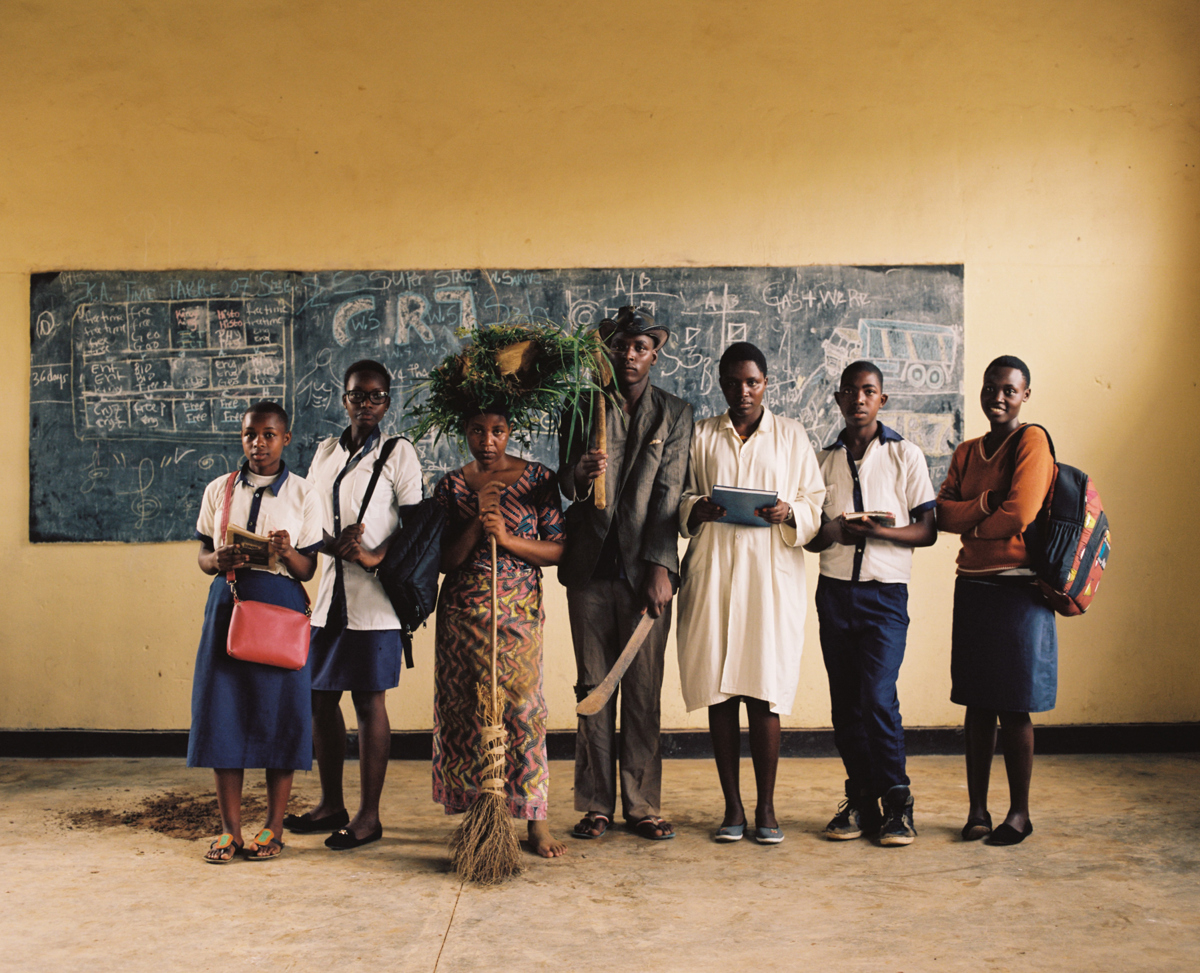18 May 2020
Share this story
Young people in remote Rwanda have taken to the airwaves to share life-saving lessons. They're spreading the word around the importance of good sanitation and hygiene practices. reaching millions around the country, they're playing a vital role in the fight against Coronavirus.

The students, aged 14 to 20, have been writing and producing engaging radio plays over the past 18 months, teaching people about good handwashing with soap and water and the importance of decent sanitation and clean water in preventing the spread of disease, such as Covid-19.
The radio dramas are the result of a partnership between Radio Ishingiro and player supported charity, WaterAid. The radio project runs alongside WaterAid’s water, sanitation and hygiene education programme to bring clean water, decent toilets and good hygiene to some of the most deprived areas of the country.
Africa has so far been less severely hit by Covid-19, but fragile health systems and a lack of access to clean water have prompted the World Health Organization to warn African countries to prepare for the worst. In Sub-Saharan Africa, 75% of people don't have anywhere to wash their hands at home and knowledge of good hygiene is not widespread. In Rwanda, according to the Joint Monitoring Programme (JMP), 95% of people don't have access to a handwashing facility with both soap and water, while 56% of schools lack clean water.
The weekly radio plays have proved a powerful tool in sharing hygiene messages. A quarter of the population of Rwanda cannot read and the cost of a TV is beyond the means of many, so radio is the most popular way for people to access relevant news and information. Radio Ishingiro is the biggest community radio in the country, reaching a massive 4 million listeners – a third of the population.
The students were able to prepare a significant amount of hygiene material before Rwanda imposed Africa’s first lockdown on 22 March - which is now being aired to reinforce their message. WaterAid is also working with the government to provide handwashing facilities in public places to help prevent the spread of the virus.
Solonge, 20, lives with her family in Bugesera district in eastern Rwanda, and contributes to the radio slot.
She said: "I have become a hygiene trainer since doing the radio programme. I taught my mother how to be hygienic and showed her that if you don’t wash your hands, you are going to catch diseases. Because I am on the radio, people take me seriously. The best thing is seeing the neighbourhood changing. The dramas really are changing lives and that makes me feel important and really happy."
Emelthe Mukashyakh, Solonge's mother, said: "All my neighbours have been listening to her (Solonge) and talking about her and that makes me feel really proud. She has been brave enough to talk about hygiene on the radio. It has given her a lot of confidence in herself and she is spreading a positive message at the same time.
"Solonge has helped me change my habits. I never used to cover the latrine or wash my hands after going to the toilet. I now understand good hygiene and sanitation is the source of good health… it is so important."
As a result of the popularity of the plays, the young people involved have turned into celebrities in their villages, managing everything from writing, acting, and even sound effects like creaking doors and animal noises. Most importantly, they have been teaching their communities important hygiene lessons which may save lives.
Martha Uwimana, a school WASH (water, sanitation and hygiene) officer for WaterAid in Rwanda, added: "The dramas are playing a crucial role in helping prevent the spread of Covid-19. The students have been emphasising the importance of regular handwashing and other good hygiene behaviour, as no meetings can take place in the community at this time. People are being encouraged to remain at home for 14 days so radio is a powerful tool."
Promoting good hygiene is one of the most cost-effective health interventions, according to the World Bank.
Players of People’s Postcode Lottery have raised more than £500 million for charities and good causes in total and, since 2013, more than £13.2 million for WaterAid and its work across Sub-Saharan Africa. Its support is helping projects such as this in Rwanda, which has reached more than 26,000 people with clean water, 2,800 with decent toilets and 5,400 with hygiene education.
Sanjay Singh, senior programmes manager at People’s Postcode Lottery, said: "It’s incredible to see how our players’ support is helping people and making an impact on lives around the world. We're proud that the funding they have raised is supporting WaterAid’s work to help bring clean water, decent toilets and good hygiene to everyone, everywhere; which is now even more essential than ever."
WaterAid Chief Executive Tim Wainwright said: "We are really grateful to players of People’s Postcode Lottery for supporting our work in Rwanda and across sub-Saharan Africa, helping to spark a chain reaction that leads to lasting change. It’s also inspiring to see how young people in Rwanda, together with Radio Ishingiro, are leading the way by educating millions of people in truly novel and effective ways about the importance of hygiene practices to improve health."
Images: WaterAid/Elena Heatherwick
